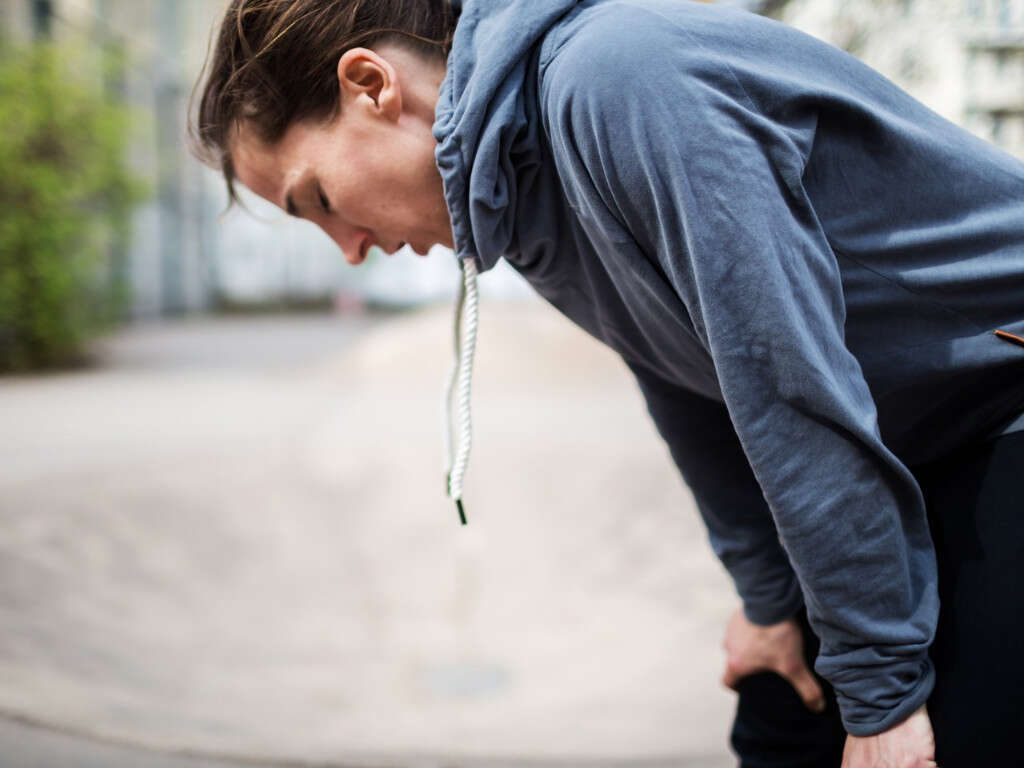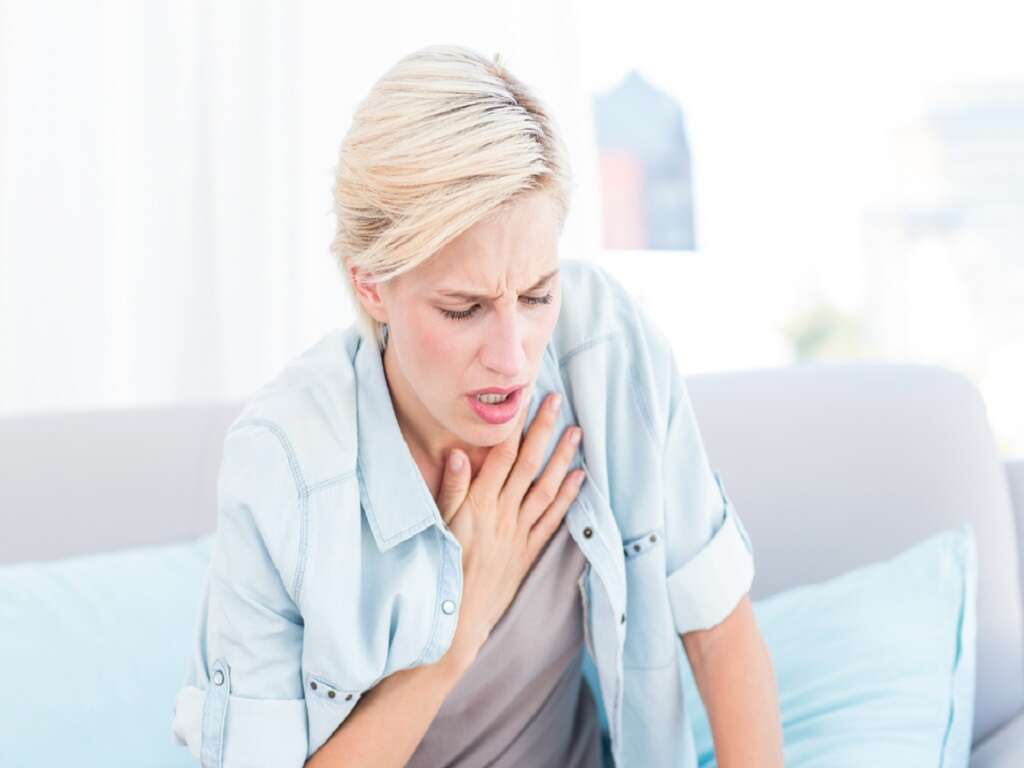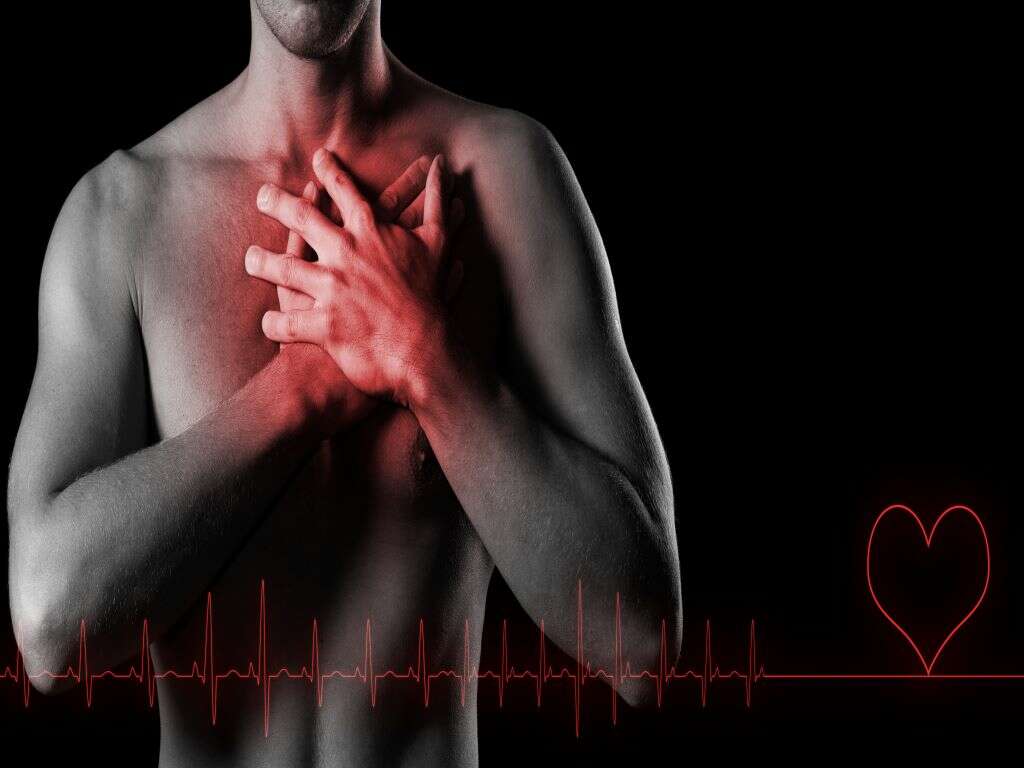10 POTS Symptoms
POTS, or Postural Orthostatic Tachycardia Syndrome, is a disorder of the blood flow. It is a condition that causes blood to remain in the lower parts of the body under the effects of gravity when you stand. This causes an abnormal increase in the rate at which the heart beats and also a drop in blood pressure.
Many of us will experience this ourselves as OI (orthostatic intolerance). It is the sensation of dizziness and other symptoms we may feel after standing quickly from a prone position.
Patients with POTS will experience the symptoms more severely and more easily. While it is often little more than uncomfortable, it can sometimes lead to a significant impact on the patient’s quality of life. This article looks at 10 symptoms of POTS.

Symptom #1: Headaches
Headaches are arguably the most common symptom that a person is likely to experience. They are so common that they are usually just overlooked where possible, with the patient turning to painkillers if the pain becomes too much to bear.
Most of the time, a headache will just pass and there should be no cause for alarm. It can sometimes be a sign of an underlying cause, though, so a headache should not always be overlooked, especially if they occur regularly or if the pain is too severe. Regular headaches can be a sign that you may have POTS.

Symptom #2: Fainting
Fainting, otherwise known in the medical industry as syncope, can be the result of various causes. Quite often it can be caused by an unpleasant shock such as hearing of a death in the family or even just being startled. It also has some medical causes, such as not enough blood making it to the brain.
If there is not enough blood reaching the brain, as can happen in POTS, the brain will take action to protect itself. It does this by closing down the parts of the brain that are not essential, causing us to black out. It should only be temporary and the patient is likely to come around again before long.

Symptom #3: Sweating
Many people find sweating to be embarrassing or unsightly. It can also lead to unpleasant odors and we will often use deodorants and antiperspirants to prevent sweating and/or bad odors. Sweating performs a very important function for us, though, and is thought to be one of the leading benefits for mankind as our ancestors were evolving.
Sweating is usually caused by being too hot, but it can also be caused by some medical conditions. Indeed, many patients with POTS will often find that they can begin to sweat, especially when they go from a laying down position to standing up position, even if the room is at normal temperature. In this case, this sweating is due to involvement of the autonomic nervous system. If you are sweating and you don’t know why, you should make an appointment with your doctor.

Symptom #4: Chest Pain
If you do experience a pain in the chest then it is something that you should probably pay attention to. A pain in this part of the body could signify a potentially serious problem with the heart or the lungs. That does not mean to say that such pains will always mean something dangerous, however, they could be a sign that you are suffering from POTS.
The temporary lack of sufficient blood flowing in the area can cause a sharp pain in the heart. Although alarming, this is usually only temporary and the pain will usually pass with no permanent damage done. Regardless, it is wise to never be complacent and arrange to get it checked out.

Symptom #5: Dizziness
If you go for too long without eating then you might begin to get dizzy as your body struggles for the energy it needs to supply the brain. Dizziness can also be bought on by standing up for too long and by being in a hot and stuffy room. It can also be bought on by various medical conditions, including POTS.
With an insufficient blood supply, the body can struggle to supply the brain with the energy and nutrition that it needs. This means that it can begin to struggle to perform as well as it should and this can cause us to become dizzy.

Symptom #6: Weakness
Our blood supplies our bodies with the energy and nutrients it needs to remain strong and healthy. It supplies the brain and it supplies our muscles, which give us the physical strength we need. Thus, it makes sense that should our blood supply falter then the overall strength of our body can be affected.
People with POTS will often feel as though they are physically weak. They can also feel very fatigued and not feel as though they have the energy to do even simple chores around the home. Such weakness is something that you should arrange to get checked out if it persists.

Symptom #7: Jittery
Facing the world on a day-to-day basis is not usually a problem for us. After all, it is something that most of us have to do on a daily basis. We will generally face each day with the confidence that we can handle what comes our way, provided that things don’t get beyond reason of course.
People with POTS, however, can often find that they feel nervous and “jittery” even when there is no reason for them to. This can make it difficult for them to work and also to deal with people on a social level. It can be enough to cause a considerable drop in their quality of life.

Symptom #8: Shortness of Breath
One of the blood’s main responsibilities is to transport oxygen around the body to wherever it is needed. In cases of POTS, the blood is not flowing effectively enough to be able to deliver enough blood to the body. The body will try to compensate to help ensure the body gets the blood it needs.
One method of doing this is to increase the rate at which we breathe, by breathing harder. This will hopefully draw more oxygen into the body, therefore making up for the deficit.

Symptom #9: Lack of Sleep
It is important that we get sufficient sleep if we are to wake up feeling fresh and ready for the day ahead. Just how much sleep is enough can depend from person to person, but for most people, it is around 8 hours. If you struggle to get enough sleep then you can find that your quality of life is affected.
People with POTS will often complain that they are unable to get enough sleep at night. This can cause them to struggle to perform in their professional lives, while their personal lives can also struggle. Remedies and medication are available that can help but bear in mind that some can lead to a dependency forming.

Symptom #10: Palpitations
The heart beats at a steady pace all day, every day. We don’t usually notice it is even there, though, although we could find our pulse if we really wanted to. We are also likely to notice our heart beat more when it is beating faster and harder, such as after we have exercised.
However, we do not normally notice our heart so much when we are at rest, although this can occur in people with POTS. Patients with the condition can sometimes physically feel their heart “fluttering” as it beats in an abnormal manner. It is not necessarily dangerous but is still something that should be checked out.












